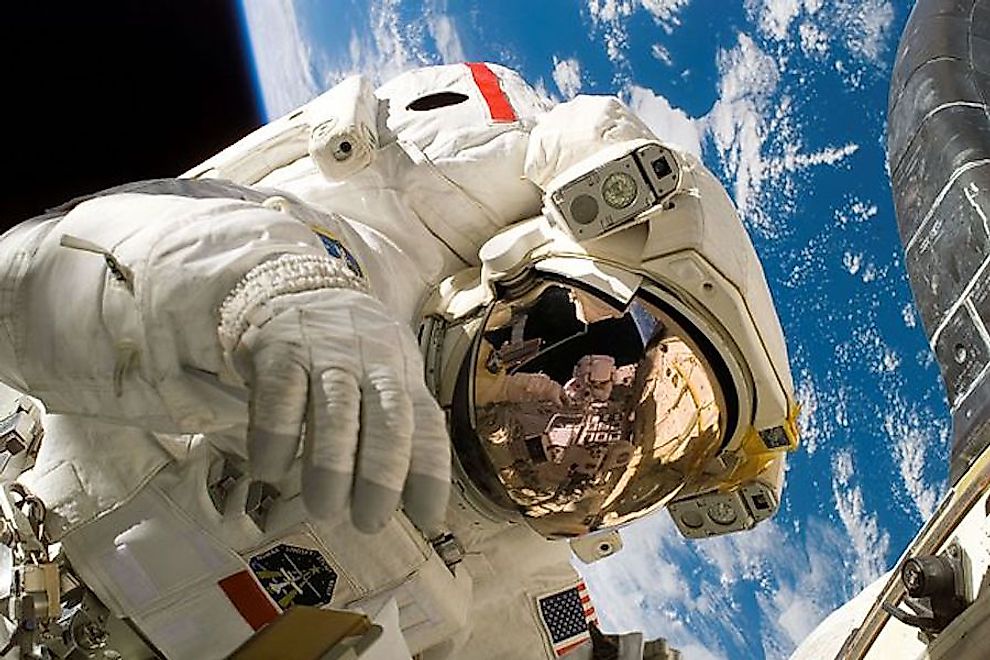Countries Who Spend The Most On Space Exploration

The space sector plays a significant role in the functioning of modern society. The sector is a high-tech niche with a complex ecosystem. The space sector employs thousands of people every year including the administrators, manufacturers, suppliers, and the wider space service sectors. The development of space efficiencies and capabilities remains a strategic goal and an area of investment by many countries and companies. Several OECD countries and emerging economies have increasingly allocated resource towards the development of space despite the economic crisis. OECD countries account for largest space budget globally. However, an increasing amount of space activities take place outside of the OECD countries. The largest portion of the space spending goes to consumer services (60%), space manufacturing supply chain (31%), and satellite operators (9%).
1. The Space Programs Of The United States
Tracking a nation’s space budget can be very challenging as the guidelines for what constitutes space spending can include a vast range of activities. These extra activities may include civilian and defense programs that are not necessarily under the programs dedicated directly to space exploration. The American space traveling activities have significantly reduced since the NASA retired its last space shuttle in 2011. However, the United States remains a powerhouse in space spending despite these slow downs. For example, in 2013, the United States spent about $40 billion on its space activities in 2013, still more than all other countries combined. The activities carried out by NASA accounted for $18 billion with the bulk of this amount spent on space exploration, research, and cross-agency report. Other areas funded by the space budget included activities that fall under several departments including Defense, Energy, Transportation, and Interior’s Geological Survey.
2. China's Space Exploration Missions
China is developing rapidly into one of the major space players. It spent about $10 billion in 2013 on space programs. However, despite having a smaller budget than the US, China has made 14 launches, almost as the many as the US has done (19). Much of China’s effort was directed towards landing Jade Rabbit rovers to the moon. The country is also building a space station and investing on the heavy-lift rockets and large satellite imaging and navigation network. China sees investment in the space sector as an indication of global leadership status giving the country legitimacy in areas associated with the super powers.
3. Russia's History Of Space Exploration
Russia has increased its space funding through the Russian Federal Space Agency in order to modernize its space infrastructure and capabilities. Russia spent about $8.7 billion in the space sector in 2013. Despite the fact that Russia has a smaller budget compared to the US and China, it has made 31 successful space launches. Russia is building a large cosmodrome in the Far East. The space budget also included maintenance of its 75 spacecraft and supporting the military’s state-of-the-art reconnaissance from space. Russia is also improving its space capabilities by increasing funds allocated towards making a trip to the moon a success by 2029. However, Russia’s space budget continues to be affected by the slump in oil prices and Western sanctions
Which Countries Spend The Most On Space Exploration?
| Rank | Country | Space Budget, 2013 |
|---|---|---|
| 1 | United States | $39.332 billion |
| 2 | China | $10.774 billion |
| 3 | Russia | $8.691 billion |
| 4 | India | $4.267 billion |
| 5 | Japan | $3.421 billion |
| 6 | France | $2.43 billion |
| 7 | Germany | $1.626 billion |
| 8 | Italy | $1.223 billion |
| 9 | Korea | $0.411 billion |
| 10 | Canada | $0.395 billion |
| 11 | United Kingdom | $0.338 billion |
| 12 | Spain | $0.302 billion |
| 13 | Brazil | $0.259 billion |
| 14 | Belgium | $0.245 billion |
| 15 | Indonesia | $0.142 billion |











